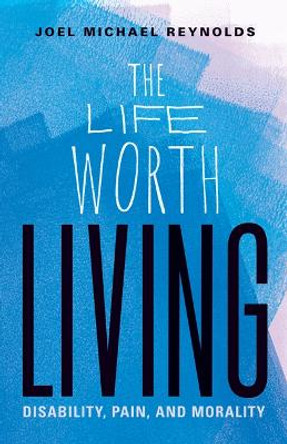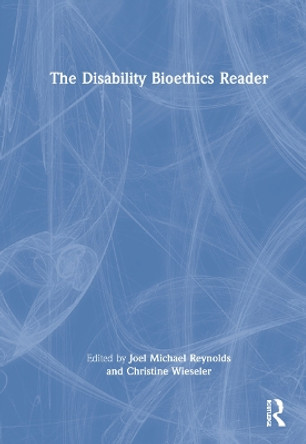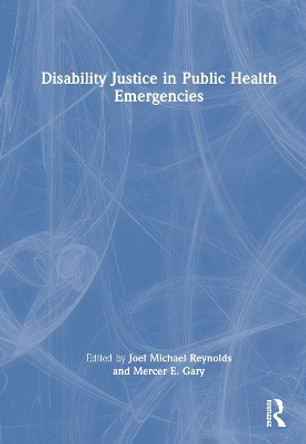Description
A philosophical challenge to the ableist conflation of disability and pain
More than 2,000 years ago, Aristotle said: "let there be a law that no deformed child shall live." This idea is alive and well today. During the past century, Supreme Court Justice Oliver Wendell Holmes Jr. argued that the United States can forcibly sterilize intellectually disabled women and philosopher Peter Singer argued for the right of parents to euthanize certain cognitively disabled infants. The Life Worth Living explores how and why such arguments persist by investigating the exclusion of and discrimination against disabled people across the history of Western moral philosophy.
Joel Michael Reynolds argues that this history demonstrates a fundamental mischaracterization of the meaning of disability, thanks to the conflation of lived experiences of disability with those of pain and suffering. Building on decades of activism and scholarship in the field, Reynolds shows how longstanding views of disability are misguided and unjust, and he lays out a vision of what an anti-ableist moral future requires.
The Life Worth Living is the first sustained examination of disability through the lens of the history of moral philosophy and phenomenology, and it demonstrates how lived experiences of disability demand a far richer account of human flourishing, embodiment, community, and politics in philosophical inquiry and beyond.
About the Author
Joel Michael Reynolds is associate professor of philosophy and disability studies and core faculty in the Disability Studies Program at Georgetown University, as well as senior research scholar at the Kennedy Institute of Ethics and senior advisor to the Hastings Center. He is the founder and coeditor of The Journal of Philosophy of Disability.
Reviews
"In this philosophically ambitious and deeply personal book, Joel Michael Reynolds exposes the ableist mistake that has afflicted philosophy at least since Socrates asked what makes a life worth living. To repair the damage done by that mistake, Reynolds exhorts us to stop looking for the worth of human lives in individual 'normate' bodies and to start building systems of access and care that make it possible for people with all sorts of bodies to flourish. Anyone committed to understanding what disability justice requires should read this book."-Erik Parens, director, The Hastings Center Initiative in Bioethics and the Humanities
"Joel Michael Reynolds's The Life Worth Living is the most insightful analysis of pain since Elaine Scarry's The Body in Pain. His phenomenology of foreboding, beholdenness, bioreckoning, and disruption is brilliant. And his critical engagement with ableist assumptions that run throughout the history of thought and continue into contemporary medical discourses powerfully demonstrates that these discourses continue to conflate disability, pain, and harm in ways that devalue 'disabled' lives."-Kelly Oliver, Vanderbilt University
"The Life Worth Living...is a book that is indispensable to anyone with a philosophical interest in disability."-Eva Feder Kittay, Stony Brook University
"A work of remarkable breadth, beauty, and clarity."-Licia Carlson, Providence College
"A thought-provoking and important book."-Kim Q. Hall, University of Alberta
"Scrupulously precise and systematic in its account of the prejudices against disability that have dominated not just general public opinion over human history, but have, according to Reynolds, determined our fundamental thinking about human life and how we assess its value."-Terence Dick, for Akimbo
"An important contribution to the growing field of philosophy of disability"-Jane Dryden, Mount Allison University
Book Information
ISBN 9781517902650
Author Joel Michael Reynolds
Format Hardback
Page Count 216
Imprint University of Minnesota Press
Publisher University of Minnesota Press
Dimensions(mm) 216mm * 140mm * 25mm









